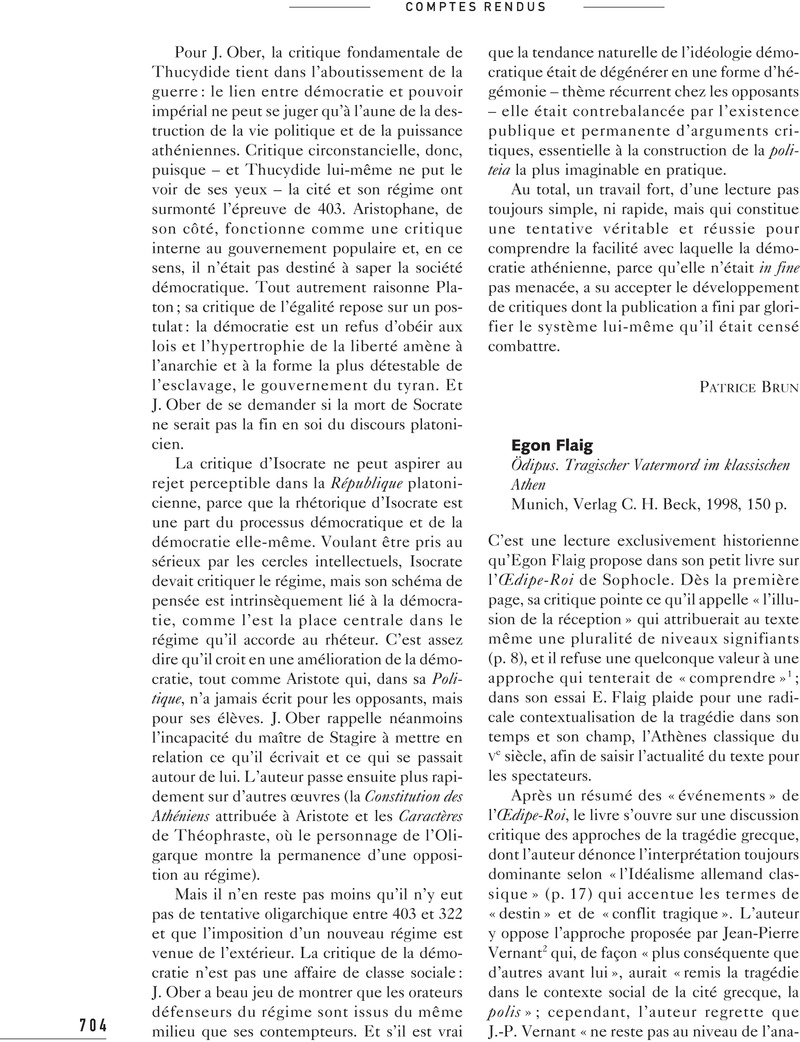No CrossRef data available.
Published online by Cambridge University Press: 04 May 2017

1 - On retrouve la position exposée dans son article « Verstehen und Vergleichen. Ein Plädoyer», in Oexle, O. G. et Rüsen, J. (éds), Historismus in den Kulturwissenschaften, Cologne, Böhlau, 1996, pp. 263–287 Google Scholar, où il critique l’approche herméneutique du « comprendre » qu’il veut remplacer par un « expliquer ».
2 - Vernant, Jean-Pierre et Vidal-Naquet, Pierre, Mythe et tragédie en Grèce ancienne, Paris, La Découverte, 1973 Google Scholar.
3 - Meier, Christian, De la tragédie grecque comme art politique, Paris, Les Belles Lettres, [1988] 1991 Google Scholar.
4 - Cf. déjà Knox, Bernard Mac Gregor Walker, Œdipus at Thebes. Sophocles’ Tragic Hero and His Time, New Haven, Yale University Press, 1957 Google Scholar; plus récemment Euben, J. Peter (éd.), Greek Tragedy and Political Theory, Berkeley, University of California Press, 1986 Google Scholar; avec bibliographies actuelles: Pelling, Christopher (éd.), Greek Tragedy and the Historian, Oxford, Clarendon Press, 1997 Google Scholar; Goldhill, Simon et Osborne, Robin (éds), Performance Culture and Athenian Democracy, Cambridge, Cambridge University Press, 1999 Google Scholar.
5 - Rösler, Wolfgang, Polis und Tragödie. Funktionsgeschichliche Betrachtungen zu einer antiken Literaturgattung, Constance, 1980 Google Scholar; Hose, Martin, Drama und Gesellschaft: Studien zur dramatischen Produktion in Athen am Ende des 5. Jh., Stuttgart, M. & P. Verlag für Wissenschaft und Forschung, « Drama Beiheft-3 », 1995 CrossRefGoogle Scholar.
6 - Cf. Vidal-Naquet, Pierre, Le miroir brisé. Tragédie athénienne et politique, Paris, Les Belles Lettres, 2001 Google Scholar.